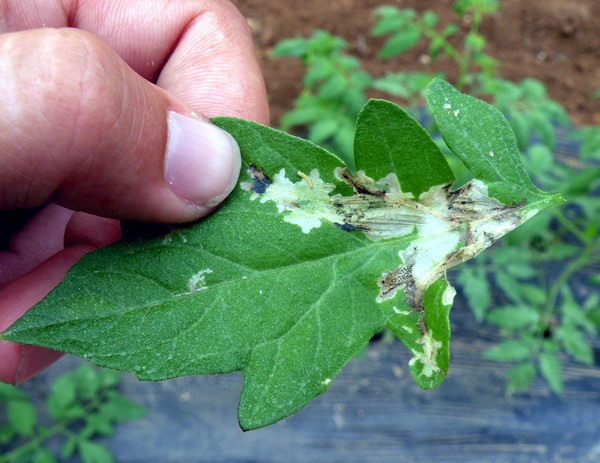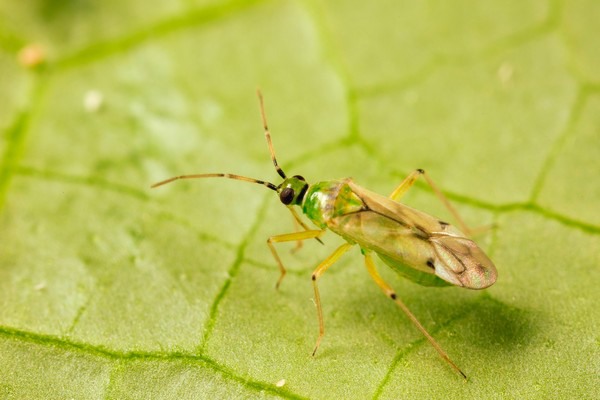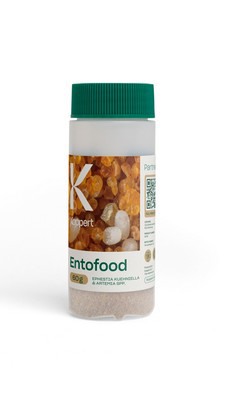"The life cycle of the Nesidiocoris tenuis predatory insect, the main natural enemy of the tomato leafminer, slows down during winter because there are fewer hours of sunlight and temperatures are lower," Koppert stated. "The cold and lack of tomato leafminers to feed from diminish the reproductive capacity of Nesidiocoris tenuis, they lay fewer eggs, and newborn nymphs will take up to two months to hatch."

Tomato leaf affected by the tomato leafminer.
"As a result, at the beginning of spring, the tomato crop won't be sufficiently protected against the first outbreaks of tomato leafminers brought by the arrival of good temperatures, as the population of Nesidiocoris will be insufficient to cope with the appearance of this pest. To correct this situation, we must help the Nesidiocoris lay enough eggs during winter."
"Feeding the Nesidiocoris more is the best strategy to alleviate the effects of cold and to make sure that the reproductive capacity of this natural enemy does not decrease during winter. To achieve this goal, Koppert recommends carrying out a feeding program with Entofood (Ephestia kuehniella moth eggs applied on tomato plants)."

Nesidiocoris tenuis, a natural enemy of the tomato leafminer.
Entofood increases female fertility
"Producers must concentrate Entofood releases in the most tender areas and where the plant receives the most light, as that's where Nesidiocoris prefers to live. This allows the natural enemy of the Tomato leaf miner to receive a very nutritious, pure protein food. Entofood has been shown to increase female fertility. Thus, this extra food allows for increasing the number of eggs they lay and, in consequence, the population of Nesidiocoris will be much greater in spring."
 "Koppert recommends completing the tomato leafminer preventive biological control strategy with black Horiver plates, preferably placed near the ground, to capture adult specimens. Koppert also recommends producers to plant Lobularia maritima plants, which the company markets, to encourage the spontaneous presence of Necremnus tutae, a parasitoid wasp of the tomato leafminer larvae."
"Koppert recommends completing the tomato leafminer preventive biological control strategy with black Horiver plates, preferably placed near the ground, to capture adult specimens. Koppert also recommends producers to plant Lobularia maritima plants, which the company markets, to encourage the spontaneous presence of Necremnus tutae, a parasitoid wasp of the tomato leafminer larvae."
"This preventive strategy to counteract the appearance of the first outbreaks of tomato leafminers in spring must take into account the date when the crops will be pruned, so it's best to always get advice from Koppert's technical department to guarantee the best results."
For more information:
Koppert
www.koppert.es










